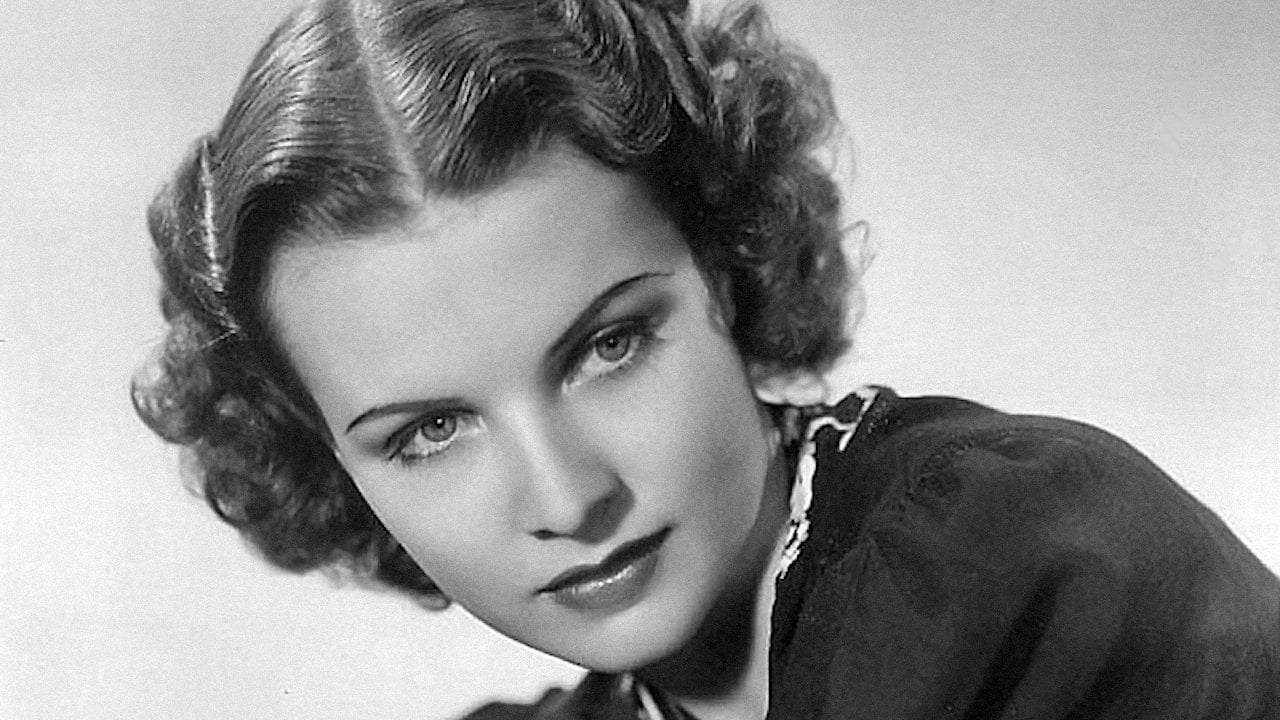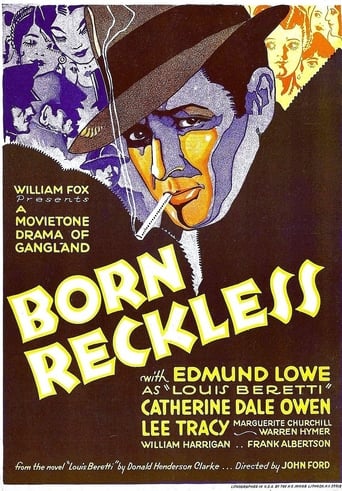


"Born Restless" is a 1930 gangster film that surely rates as one of the worst gangster films of all time, made even worse when you think of the great gangster films that came out in the early 30s – "The Big House" (1930), "Little Caesar" (1931), "Public Enemy" (1931), "The Beast of the City" (1932), "Scarface" (1932), etc.The version I saw had the worst sound of any film I've viewed, so this added to the problem.Edmund Lowe plays the star. Lowe was a leading man in the silent era ("East of Suez". "What Price Glory") and he plays this one as if it were a silent film, and given how poor the dialogue is, you wish it was a silent film. He did some good work later on (e.g., "Dinner at Eight", Dillinger") but in this film he is wooden.Lowe isn't the only wooden actor. Almost all the scenes are staged with nary a movement.This is a John Ford production and Ford gets credit as a co-director. It reminds us that while Ford gave us about a dozen of the finest films ever made, he had a lot of clunkers too, and among his finest films I can't recall a gangster film.All things considered there isn't any reason to watch this film. You may be curious, as was I, about viewing an early John Ford film, but give this one a miss and go with "The Lost Patrol" (1934) or "The Informer" (1935).
... View More"Born Reckless" did not strike me as an appropriate title, but the original title of the story from which this movie came was simply "Louis Beretti," even more meaningless."Born Reckless" starts right out with action and even gunshots, but moves rather slowly throughout. But remember, this is an early sound picture, and in that context, it is very well done.Locations range from New York to the World War I battlefield of France and back, from urban New York to the countryside, and the look we get of the era makes "Born Reckless" valuable, if not an entirely entertaining motion picture.It has an excellent cast, with Edmund Lowe the star. He was a good actor but is little known today.However if you look carefully, you will see the biggest star of all time ... but you have to look VERY carefully. In fact, I never did see John Wayne, although he is listed in the "uncredited" cast here at IMDb.Quite visible, although also uncredited, is the great Randolph Scott. Also visible is the great Ward Bond, who is given billing but is on-screen in about two scenes.Known well to John Ford aficionados is Jack Pennick, quite visible also, and whose presence always added so much. Another future cowboy star I didn't see is Bill Elliott, uncredited.Playing the sister of the Lowe character is Marguerite Churchill, who had a couple years before co-starred with John Wayne in "The Big Trail," and it must have been interesting to be on this set with him as an unbilled extra.Lowe's character is not especially likable, and probably the most likable character is the newspaper guy, played by Lee Tracy.The cast alone makes "Born Reckless" very worth watching, even though the story is not very pleasant. It is, though, an interesting look at the World War I and Prohibition era America which, added to the cast, should entice you into watching.I do recommend it, having watched it On Demand from Time Warner Cable. There is a trailer for it at YouTube.
... View MoreHow much of this film was directed by Andrew Bennison and how much by John Ford is your guess. All I know is that with Ford at the helm, I sure expected more from this very flat film."Born Reckless" is a gangster film with rather odd casting. Edmund Lowe stars in this film and frankly he didn't seem at all the gangster type. Part of this might be because I've only seen Lowe in about a dozen films (and he made over a hundred) and none of them ha him playing anything even closely resembling a criminal. Usually, he played very sophisticated and cultured sorts of men and with his lovely diction it just felt odd to have him hanging out with the sorts of Warren Hymer in the film--Hymer usually playing idiots or thugs. So, from the onset I had trouble accepting Lowe in the film--although I like him as an actor.The other problem I noticed is that the film didn't seem sure whether or not to make Lowe a bad guy or a good guy. At the beginning he seemed kind of bad--after all, he was involved in an armed robbery. then, however, only minutes later he seemed like a swell fella when he met his sister's new boyfriend. And, when the police brought him in because of the robbery, he agreed to serve in WWI in order to avoid prison--and he served with distinction. Later, after he got out, he was not the most law-abiding of citizens (opening a speakeasy), but he also had a very, very moral code--one you'd certainly not expect from the owner of a speakeasy!! As a result, the film was muddled despite having some very interesting elements and a dandy violent finale. With all the great gangster films of the early 30s, my attitude is that you should see all of them first! With wonderful films like "Scarface", "Littel Caesar" and "Public Enemy" (among others), why mess with this mediocre and poorly written film?
... View MoreWith such fluid epics as "The Iron Horse" (1924), "Lightnin'" (1925), "Hangman's House" and "Four Sons" (both 1928) in his resume, it is surprising that Fox would encumber Ford with a dialogue director over and over, but Fox did. In '29's "The Black Watch" it was Lumsden Hare. Andrew Bennison is credited with the stage direction of "Men Without Women" released January 1930. Judging from the result Bennison achieved in "Born Reckless" (released in May 1930), I'm astonished anyone would have given him a second chance.The photoplay opens with a traveling camera shot of a parade. The camera prowls into a jewelry store where a heist is in progress. Outside, the cops "get wise" when a stolen truck is discovered. An exiting shootout and chase ensues, with our hero, Louis Berretti, gaining refuge at his parents' apartment. Then Bennison's stuff takes over. Well, molasses in Anchorage moves better and the pace of the film congeals. Berretti faces justice (eventually) and is "sentenced" to join the war effort overseas. John Ford stages some excellent sequences here, with Berretti's approbatory service delivering him home a hero. He opens a nightclub which, unfortunately, keeps Berretti rubbing elbows with his old mob and allows plenty scenes filled with Bennison-helmed hubris. The dialogue is not only awkward with head-shaking gaps, but has characters with names like Big Shot putting people "on the spot" [murdered].Audiences of 1930 could not fast forward but you can and should. Edmund Lowe's performance is nothing like the smooth "Chandu" of a year later and probably should be skipped over to view Ford's impressive set pieces. The swamp at the picture's conclusion cribs Fox's "Sunrise" but remains impressive for an early talkie. I gave it a 7 for Ford's contributions. On the whole, though, this is the kind of film that gave early TV viewers a bad taste for early talkies. Viewers beware.
... View More